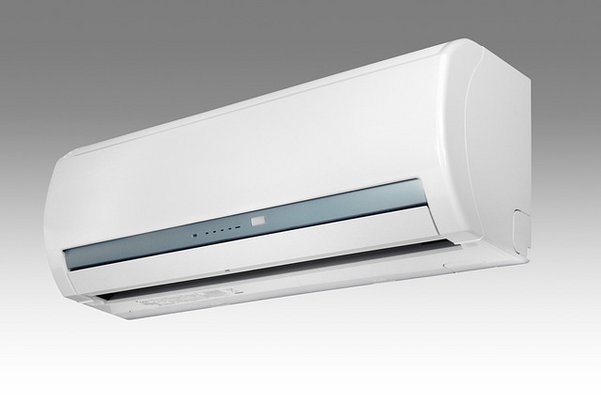
The summer’s sizzle or winter’s chill, having a well-functioning air conditioning system is no longer a luxury—it’s a necessity. The benefits of a good air conditioner go beyond just comfort; it affects our health, efficiency, and overall quality of life. But, as with any essential system, the key to enjoying these benefits lies in selecting the right service provider. This guide will steer you through the pivotal aspects of choosing an air conditioning company and ensuring your cooling and heating needs are met effectively.
1. Understanding Your Needs
A one-size-fits-all approach doesn’t work when it comes to air conditioning. It’s essential to understand and tailor solutions based on your specific requirements. Here’s a deeper look:
- Space Assessment: Different spaces have different cooling or heating needs. A residential apartment will differ vastly from a commercial warehouse or office. Factors such as ceiling height, window size and direction, and insulation can influence the air conditioning system required.
- User Patterns: How frequently do you intend to use the air conditioner? If it’s for a home office, it might run all day, while a bedroom unit might only be used during the night. Recognising these patterns can help you choose energy-efficient models and reduce electricity costs.
- Climate Considerations: The local climate is crucial. Areas with high humidity might need air conditioners with better dehumidification processes, while colder areas require units with efficient heating capabilities.
- Future Adjustments: If you plan to renovate or expand the space shortly, your air conditioning needs may change. Therefore, it’s wise to select a system that offers flexibility.
2. The Installation Saga: What to Look For?
Once you’ve identified your needs, the next challenge is ensuring that your air conditioning installation is seamless and efficient. Here’s what you should focus on:
- Expert Evaluation: A professional air conditioning company should thoroughly inspect the site before installation. This helps them understand potential challenges and plan accordingly.
- Brands & Models: While brand reputation is essential, ensuring the specific model aligns with your requirements is crucial. Some offer advanced features like intelligent temperature control, while others focus on energy efficiency.
- Transparent Communication: The installation process might require structural adjustments or changes. Keeping an open channel of communication ensures you’re aware of these alterations.
- Warranty and Service Guarantees: The assurance of after-sales support and service warranty indicates the company’s confidence in its installation process. Always opt for providers who offer these assurances.
3. Maintenance: The Unsung Hero of Longevity
Air conditioning maintenance, often overlooked, is paramount for any air conditioning system’s optimal functioning and longevity. Here’s why it’s the unsung hero:
- Regular Check-Ups: Like health check-ups, regular air conditioning system inspections can detect minor issues before they become significant, expensive problems. This can save both money and time in the long run.
- Improved Efficiency: Filters may get clogged over time, and systems can become sluggish. Routine maintenance ensures that all parts are clean and functioning at their best, translating to better efficiency and lower energy bills.
- Prolonged Lifespan: A well-maintained system runs smoother and faces less wear and tear. This invariably prolongs its lifespan, ensuring you get the most out of your investment.
- Air Quality: Over time, air conditioners can accumulate dust and pathogens. Regular maintenance ensures these are cleaned out, guaranteeing the air you breathe is fresh and clean.
4. Energy Efficiency: A Modern Necessity
As awareness of our environmental impact grows, so does the need to incorporate green technologies and practices into our homes and businesses.
- Eco-friendly Models: Modern air conditioners often come equipped with energy-efficient ratings. Always look for units with higher energy star ratings – they significantly reduce carbon footprints and electricity costs.
- Smart Technologies: With the rise of the Internet of Things (IoT), many air conditioning systems now come with innovative features. These allow for remote control, adaptability based on weather conditions, and even learning user patterns over time, all of which can enhance efficiency.
- Zoning Systems: Beneficial for larger homes or commercial spaces, zoning systems allow you to cool or heat specific areas, ensuring energy isn’t wasted on uninhabited or seldom-used spaces.
5. Safety and Health: Breathe Easier
An aspect often overlooked when considering air conditioning is the impact on health. Proper air conditioning can play a pivotal role in maintaining and even enhancing the health and safety of inhabitants.
- Air Purification: Many modern units come with built-in air purifiers that can remove common pollutants and allergens, making the air cleaner and healthier to breathe.
- Humidity Control: High humidity can not only be uncomfortable but can also promote mould and bacteria growth. A sound air conditioning system will regulate humidity, ensuring a comfortable and healthy environment.
- Safety Protocols: Especially for those living in urban areas, leaving windows open, especially at night, might not be a safe option. Air conditioning lets residents keep windows closed, ensuring a safer living space.
6. Consider Long-term Costs
While initial investment is often a primary concern, it’s important to consider the long-term costs associated with your chosen air conditioning system.
- Repair and Replacement: Opt for brands and models known for their durability. While they might be pricier initially, they often translate to fewer repairs and a longer lifespan, offering better value for money in the long run.
- Operational Costs: Though more expensive initially, energy-efficient models can significantly save monthly electricity bills.
- Maintenance Packages: Some companies offer annual maintenance packages that can be more cost-effective than one-off servicing costs. These packages often include regular check-ups and discounts on repairs.




 POSTED BY
POSTED BY 

